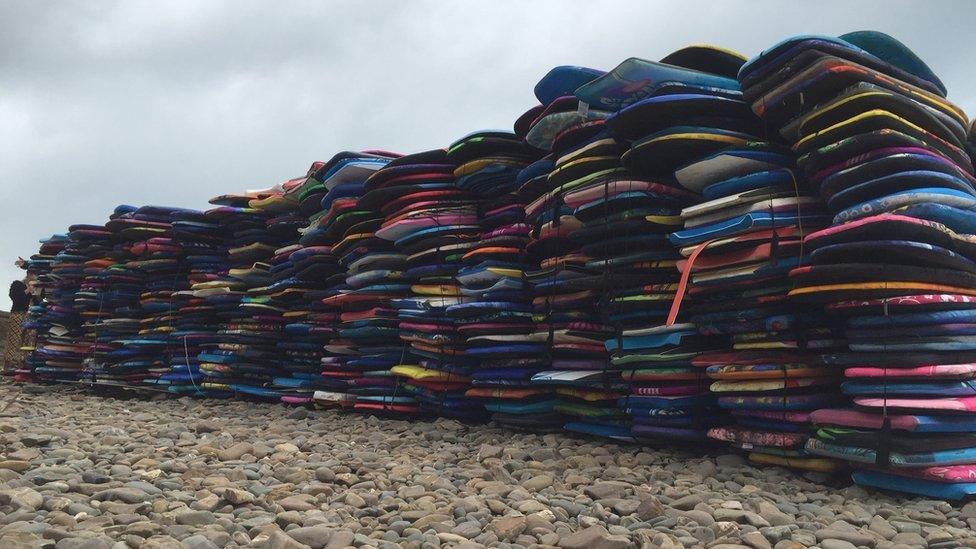Plastic pollution: Crabbing recycling scheme aims to cut waste
- Published
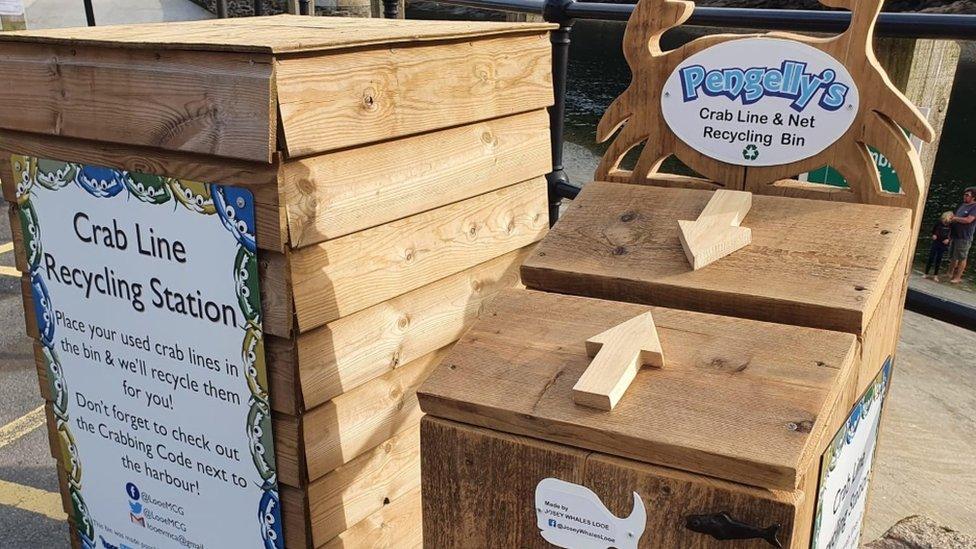
The stations will give users a place to leave their crabbing lines once they are finished for the day
A recycling scheme for crab lines in Cornwall is thought to be the first of its kind in the UK.
The project launched by Looe Marine Conservation Group aims to reduce the amount of plastic pollution produced by the seaside activity.
The group says crabbing has come "under fire" in fishing towns due to lines and nets being left behind.
New recycling stations will see equipment either reused by fellow crabbers or recycled.
The scheme will offer a place for people to deposit their lines after a day spent crabbing.
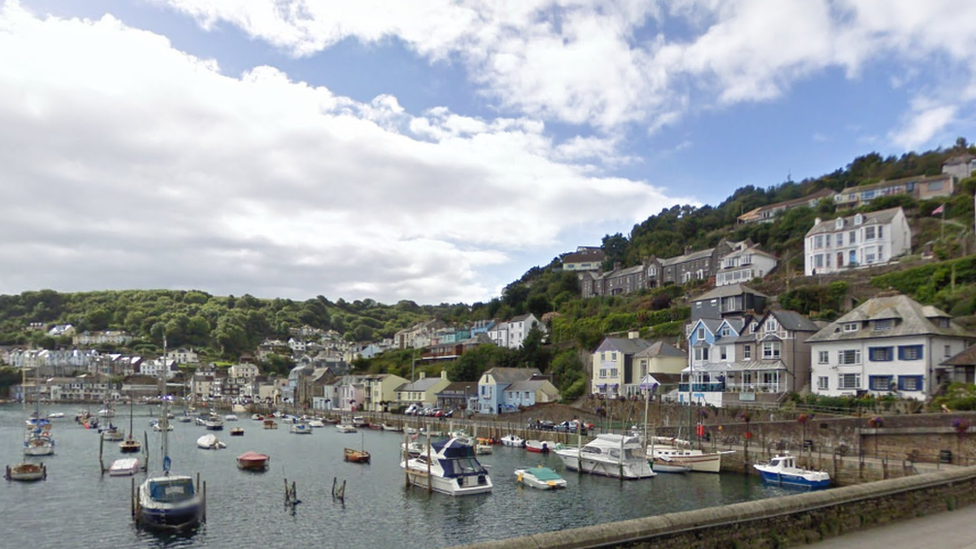
Looe's harbourside is a popular destination for crabbing in Cornwall
Stations will be regularly emptied by volunteers who will sort through the contents and decide the fate of the lines.
Some of those that cannot be reoffered to the public will be recycled into ocean kayaks, the group said.
Chairperson Amelia Bridges said: "For years, we've racked our brains to identify a solution to this growing problem and hope this scheme, alongside our Crabbing Code of Conduct launched last year, goes some way towards that.
"Discarded crab lines and nets pose very real threats to marine wildlife, particularly in terms of entanglement, and pose a problem for our inshore fishing fleet by fouling propellers so anything we can do to stop that is really worthwhile."
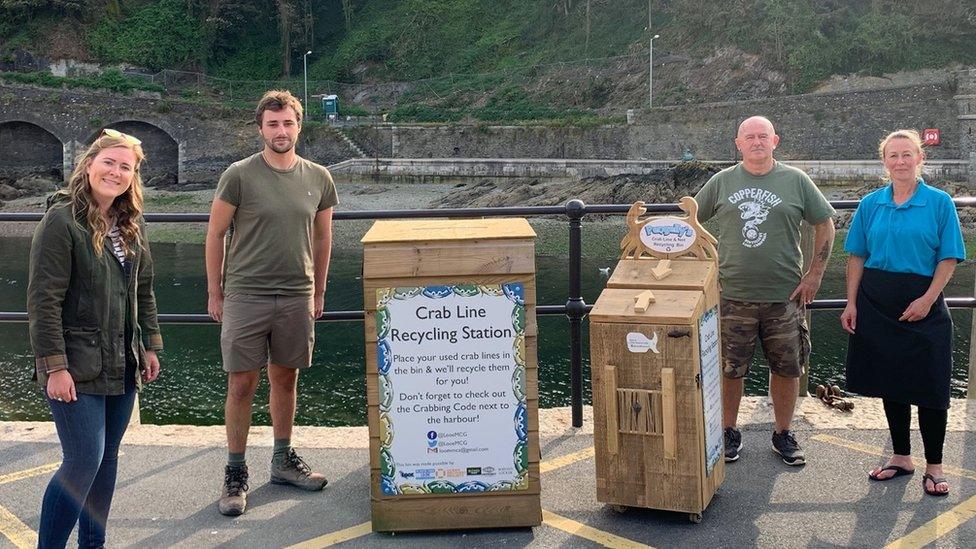
Amelia Bridges, Chairperson of Looe Marine Conservation Group and marine biologist; Sam Gill, manager of Banjo Beach Shop; Pete Spencer, carpenter and owner of Josey Whales; and Hayley Phillips, fishmonger and owner of Pengelly’s Fishmongers
Carpenter Pete Spencer, who has made the stations, said they were built out of reclaimed scaffold board and aimed to be "as environmentally friendly as possible".
Two prototype boxes are in place so far, with a plan to install more in the coming months.
- Published18 February 2020
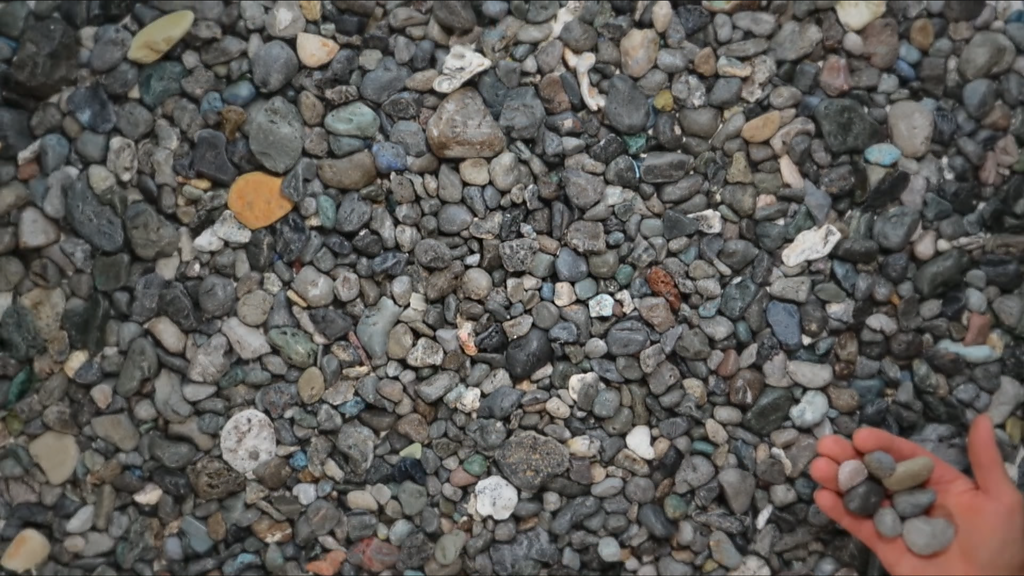
- Published29 August 2020
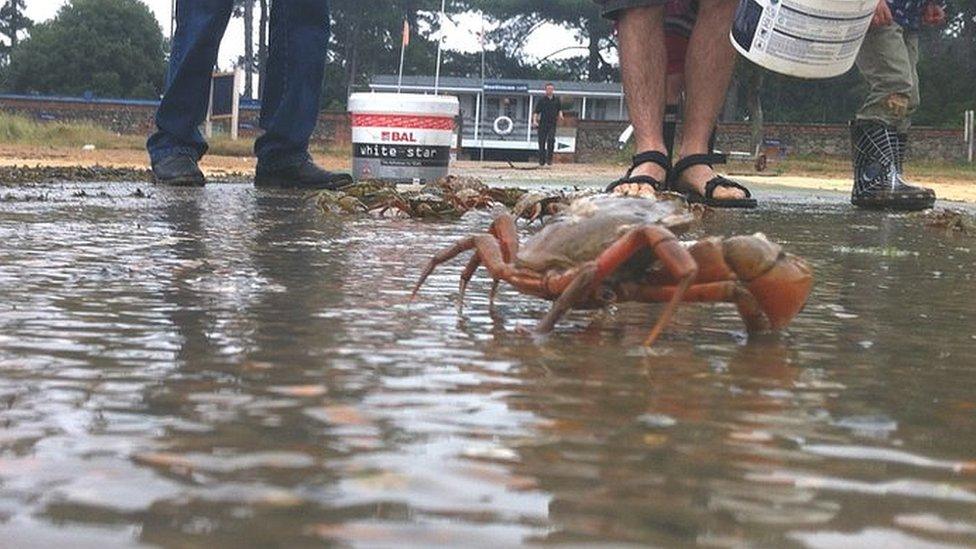
- Published13 August 2020
